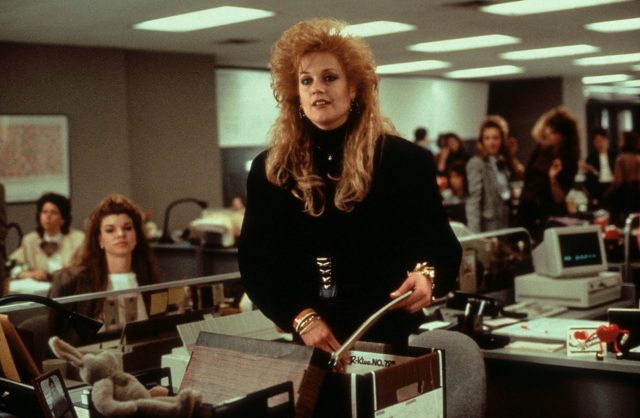When it comes to bullying, the first thing that comes to mind is the school corridors where the “outsiders” become targets of ridicule and humiliation. But it would be wrong to think that adult life saves us from such troubles. Sometimes the most sophisticated forms of bullying await us not during breaks, but in offices, meetings and corporate instant messaging chats.
Adult bullying is not always as obvious as in childhood: it is not customary to throw papers or say offensive words. No, everything happens more subtly and sophisticatedly. Adult bullies know how to hide their actions behind the mask of “business communication” and “professional criticism”, leaving the victim only a ghostly feeling of guilt and doubt in their own abilities. But the consequences of this invisible bullying are no less devastating than punches to the stomach in school corridors. It gets to the core of our self-esteem, poisons the atmosphere at work and can seriously affect our career development and mental health.
So how can we recognise these hidden attacks and deal with their consequences? So what can you do to help yourself feel safe and confident in your workplace again?
Psychologist Olga Romaniv answered these questions exclusively for The Fashion Vibes. She told how to recognize and neutralize the instigator of bullying in the work team, and also suggested what steps to take to protect your psyche from shocks.

Olga Romaniv, psychologist
What are the signs of workplace bullying?

WITHsystematic neglect and isolation
If you find yourself being ignored in meetings, left out of discussions, or not being listened to, it could be a sign of bullying. It’s not just a cold shoulder or lack of time, it’s also a deliberate isolation designed to throw you off balance.
Damage to business reputation
Bullying can manifest itself in the form of destructive behavior behind your back. If you notice that someone is spreading gossip about you or interpreting your actions with malicious intent, this is a serious alarm signal.
Unfounded criticism



If you are constantly and unfairly criticized for your work even though you are performing your duties well, this could be bullying or you could be asked to perform tasks that are not in line with your responsibilities or job description.
Clues to inadequacy
If your colleagues or management constantly highlight your shortcomings and ignore your successes, this can also be a form of bullying: Your work is discussed negatively, and you are accused of mistakes that have nothing to do with your job, despite your successes.
What should you do if you are being bullied at work?



If you are being bullied at work, it’s important to act systematically and consciously. Here are some concrete steps to help you cope and protect yourself.
Document all bullying incidents
The first and most fundamental step in combating workplace bullying is to document all incidents of bullying. Keeping accurate records will not only help you understand what is happening, but will also provide important evidence if you need to seek help.
Record each bullying incident, including the date, time, location, and participants. For example, “July 12, 10:30 AM, room 203 – Alexey publicly reprimanded me for my work at morning meeting, even though I completed the task as instructed.”
Keep emails, messages, documents, and other evidence of the bullying. This could be screenshots of the offending messages or notes noting the incidents.
If your colleagues are present during the bullying, try to find out if they are ready to confirm your words. Write down their names and contact information.
Documentation is your first and main protective barrier; it will help you when contacting management or legal authorities.
Ask for support from your colleagues



In case of bullying, it is important to ask for support from your colleagues. You cannot deal with this alone and the help of others can be your ally in the fight against toxic work environment.
Contact colleagues who may have witnessed what happened or who can provide moral support. For example, you can talk to those who witnessed the events to get their opinions and ask for support.
Talk confidentially with your colleagues about the situation. This will not only help you gain moral support, but will also help create a common view of the problem.
If you are concerned that your statements will cause conflict, choose colleagues who have nothing to do with the bullying and can give an objective assessment of the situation.
Support from your colleagues can be an important part of your plan to protect against bullying and improve the overall moral climate on your team.
Contact HR

If bullying becomes unbearable, contact HR. HR professionals have a responsibility to provide a healthy work environment and resolve issues related to workplace conflict.
Bring documented evidence of the bullying, such as incident notes, emails, and text messages. Prepare a clear description of the situation and a list of what you have already done to address the problem.
Be objective and focus on the facts. Explain the issue so the HR professional understands the seriousness of the problem and the validity of your claims. Request a formal meeting to discuss your situation. Make sure you are in a safe and confidential environment.
Enhance your professional reputation
It’s important to build your professional reputation against workplace bullying. Focusing on your own achievements and qualifications can help you maintain your confidence and protect yourself.
Work for results and strive for high standards in completing tasks. Make sure your work exceeds expectations and meets the job description.
Update your resume and documentation of your accomplishments regularly. Keep a list of completed projects, goals achieved, and positive feedback.
Look for opportunities to receive positive feedback from customers and management. Document all your thanks and compliments.
Search for translation opportunities


If the situation doesn’t improve, look for opportunities to move to another department or position. This can be a way to get away from a toxic environment and find a new place to work. Review the available positions at your company and see if there are any opportunities, then discuss them with your manager. Don’t rush to focus on personal conflicts with your colleagues: let your boss see your professional interest. Be prepared to interview for a new position if the opportunity arises. Showcase the skills and accomplishments that would be useful in your new role.
Get psychological help
If you are being bullied at work, don’t be afraid to seek professional help from a psychologist to help you cope with the pressure and stress of unpleasant coworkers. Schedule regular sessions to work through your emotions and develop a stress management strategy. Discuss all aspects of your situation during sessions with a psychologist to ensure you receive effective help and support.
Source: People Talk
Errol Villanueva is an author and lifestyle journalist who writes for The Fashion Vibes. With a passion for exploring the latest trends in fashion, food, travel, and wellness, Errol’s articles are a must-read for anyone interested in living a stylish and fulfilling life.





